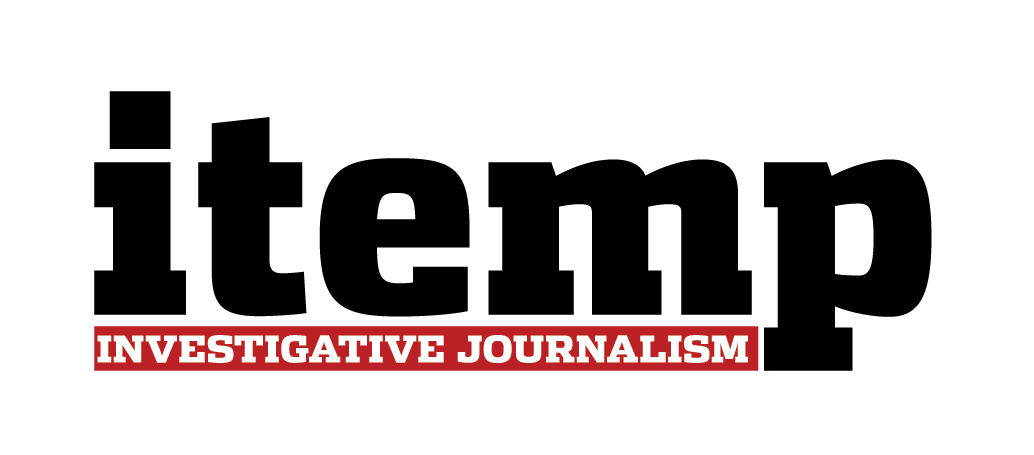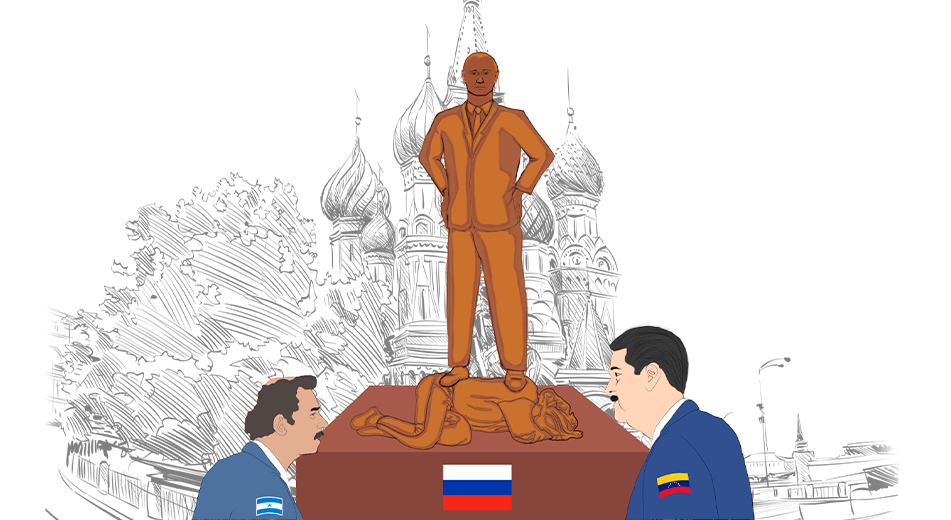Russian diplomats in Venezuela collected ample information about nongovernmental organizations that receive foreign funds and they also provided advice to the Venezuelan regime amidst a crusade to silence opposition groups, according to the findings of an investigation
In a full-scale offensive against the insurgents, Russia has lent a hand to certain Latin American governments, particularly those of Venezuela and Nicaragua, for the inclusion of Kremlin-style repressive laws intended to bury independent activism as a potential threat.
Beyond “inspiring” the regimes of Daniel Ortega in Nicaragua, Rafael Correa in Ecuador, or Nicolás Maduro in Venezuela to make social control laws, in private talks with government representatives, Russia fingered some individuals regarded as harmful, according to an investigation by ITEMP Project based on interviews and documentary evidence.
Over the past few years, Russian diplomats to Caracas have collected ample information about nongovernmental organizations (NGOs) that are the recipients of foreign aid and created a data base to cross their inquiries with Moscow, with the aim of “giving cooperation” to the Venezuelan regime in its efforts to limit and centralize international assistance, according to former government officials abreast of the events.
A policy of containment of Washington and the European Union underlies the harassment sponsored by Moscow, aimed at thwarting any initiative opposed to the various forms of authoritarianism in Venezuela, Nicaragua or Belarus, for that matter.
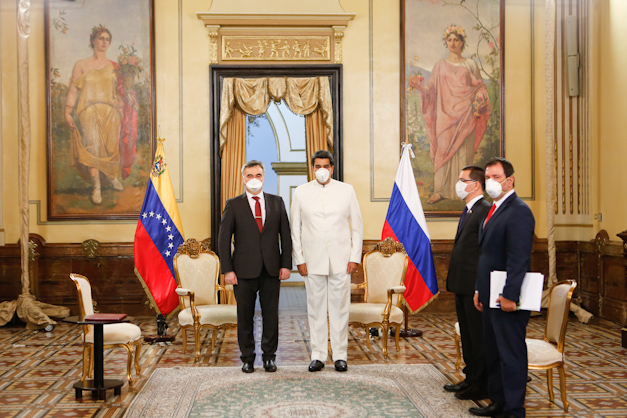
On the far side of performing their customary diplomatic functions, the officers in charge of the Russian mission in Caracas “had a profound, almost obsessive, interest in learning about which NGOs were receiving funds from the European Union and the USAID, in particular, who were their directors, and how they operated,” said an ex-member of the Venezuelan government who witnessed at least six meetings in 2017-2018, asking not be identified by name.
The United States Agency for International Development (USAID) coordinates humanitarian aid to foreign countries on behalf of the US government. In the case of Venezuela, such assistance is granted through NGOs and a number of government opponents.
Upon Vladimir Putin’s arrival in the Kremlin, Russia has stigmatized the dissenters, labelling them as disloyal, mercenaries or traitors, who act against the national interest.
Based on the claims of humanitarian organizations, such a policy boosted by Putin since 2002 forms part of a crackdown, including legal constraints on the Internet, freedom of speech, and the rights of the lesbian, gay, bisexual, transgender, gender diverse, intersex, queer, asexual and questioning (LGBTIQA+) communities, among others.
As for Venezuela, “for the Russians, knowledge about the beneficiaries of the US and European aid was of the essence. They handled information of around fifty local NGOs with foreign links, and they strongly recommended that we needed to be careful of those groups and their managers.”
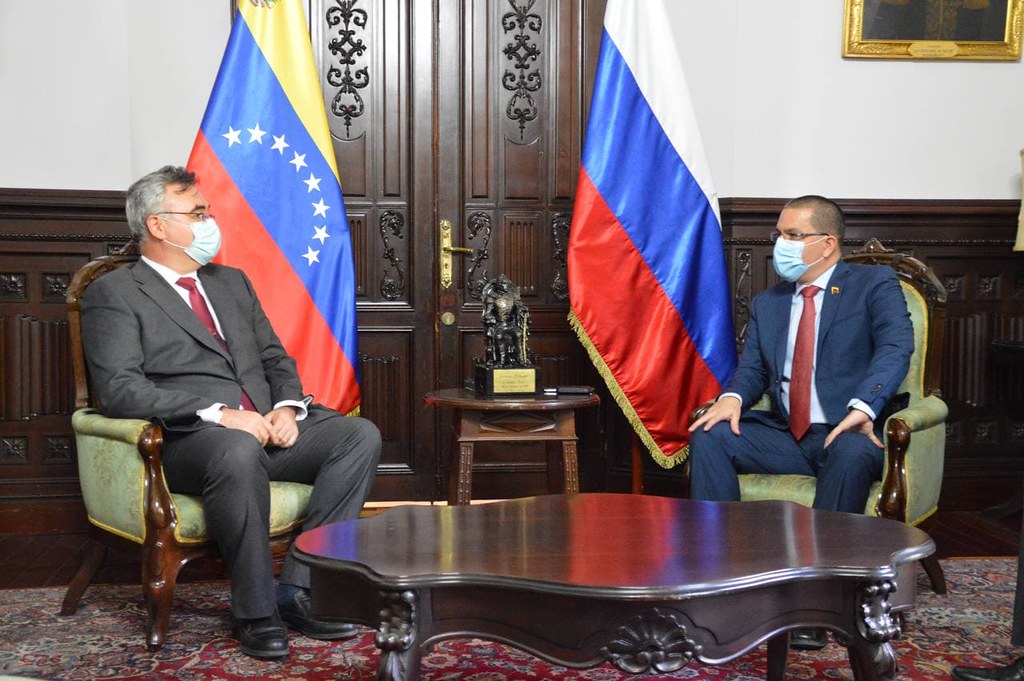
“They went straight to the point as to which NGOs should be targeted as a major or minor risk for us. In some cases, they even noted that the same financiers were present in Russia, supporting cover-up actions against the Russian government,” said a former member of the Venezuelan government while showing four minutes of such meetings.
The papers display the names of Russian diplomats attending regular meetings. One of the sources asked not to reveal their identities. Three out of the Russian diplomats listed in the reports completed their duty periods and they are not in Venezuela any more.
In February 2020, President Putin designated Sergey Melik-Bagdasarov as the successor of Vladimir Zaemski, the Russian Ambassador to Venezuela for more than ten years. Previously, Melik-Bagdasarov, a seasoned diplomat, acted as Deputy Director at the Latin American Department, Ministry of Foreign Affairs of Russia.
Rather than usual data collection by diplomats for their Ministry of Foreign Affairs, their assignments could be labelled as intelligence work or spying of private legal institutions in a foreign country, contrary to international conventions.
The sources do not know if the Russians eavesdropped on the calls or tracked the communications of the NGOs called into question. But “they were in possession indeed of all technical details, including names of the board, telephone numbers and personal e-mail addresses.”
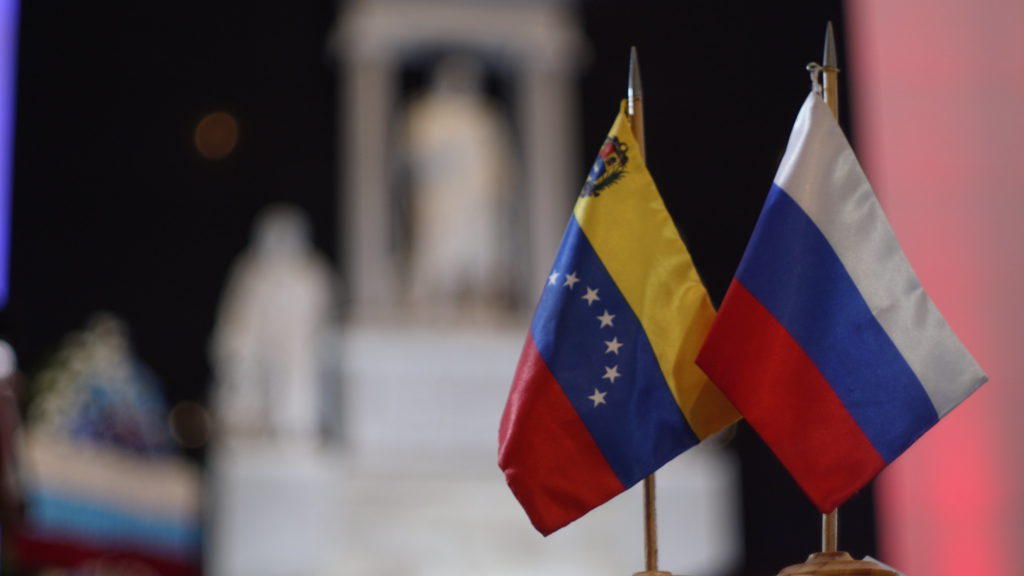
“They did us a favor about something that, perhaps, we could have found easily, yet they delved into details that we did not know,” the ex-official admitted without specifying such details.
The minutes of the meetings held in the Venezuelan Ministry of Foreign Affairs include notes on specific NGOs receiving US government and private financing, and also of NGOs critic of Nicolás Maduro’s policy.
Russian diplomats boasted of their enquiries being shared at the highest level, even with quite a few pro-government parliamentarians at the opposition-controlled National Assembly by then, one of the sources said.
The news of these meetings demonstrates the attempts by the Russian government at demonizing every independent initiative, not only in Russia but also in allied countries, thus jeopardizing both the mission of dissenting groups and compromising the safety of their members.
A spokesperson of the Venezuelan Ministry of Foreign Affairs did not reply to a request for comments. At the same time, a spokesperson of the Russian Ministry of Foreign Affairs refused to supply information related to this story.
The State Department through a spokesperson “condemned the hostility” against NGOs by the Maduro government and labeled the alliance around Russia and other foreign actors “as a sign of lack of legitimacy”.
“Nicolás Maduro and his supporters engage in widespread repression of the Venezuelan people, targeting anyone who publicly disagrees with or criticizes them, and that includes NGOs, and a variety of credible, as independent voices from Venezuelan civil society and international NGOs have documented. These efforts to impede NGO operations and harass and intimidate civil society organizations deeply concern the U.S. government,” said spokesperson by email.
“We condemn this hostility and we regularly call for the international community to expand support for civil society actors in Venezuela and to continue to denounce efforts to harass and persecute civil society actors, as well as efforts to close civic space. Maduro’s reliance on support from Russia and other foreign actors only makes clear his lack of legitimacy,” the spokesperson said.
Toxic label
In the 1990’s, right after the collapse of the Soviet Union, Russia developed quite a diverse and vibrant civil society, and NGOs -many of them under the aegis of Europe and the United States- played an important role in protecting human rights and democratic processes.
For a nation governed by one single political party for almost 70 years and with a scanty democratic culture, the NGOs’ work included election monitoring, public opinion surveys, anti-corruption investigations, human rights work, education, and charitable work.
Many of them were also an important source of expert and independent information and were vocal in their criticism of the Kremlin. “Apparently, some or all of this was seen as a threat by authorities,” said Damelya Aitkhozhina, an outstanding investigator into Russian affairs at Human Right Watch (HRW).
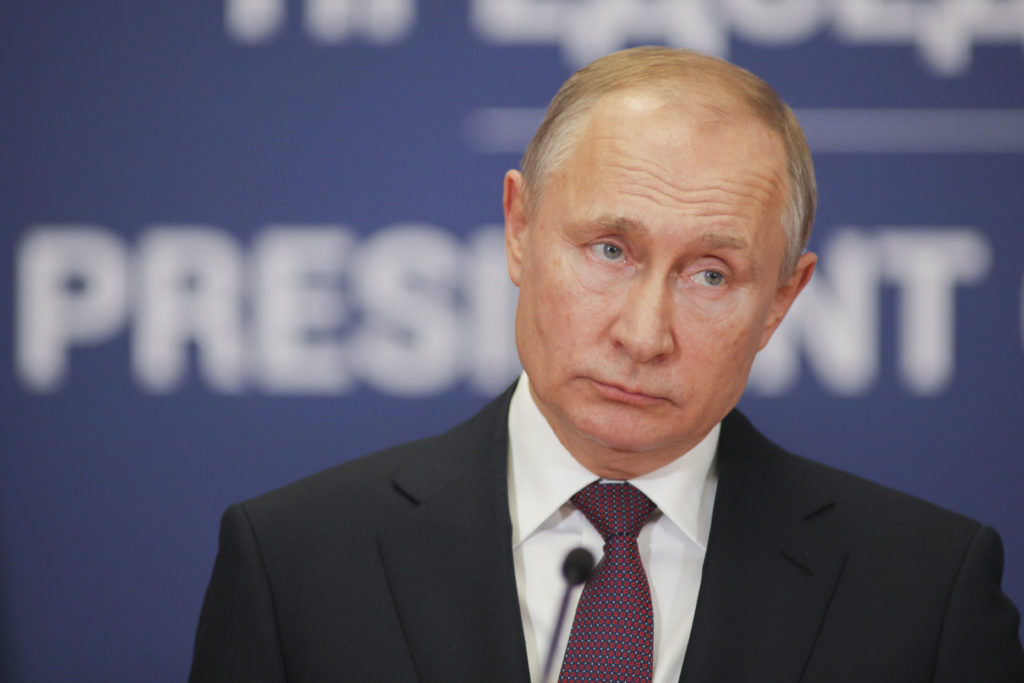
“We don’t really know, but it is clearly part of a larger crackdown against civil society and dissent in the country. It doesn’t limit with means to restrain and control NGOs, it also affects freedom of expression, freedom of assembly and other civil and political rights,” Aitkhozhina added in an interview with ITEMP Project.
In the middle of humanitarian crisis marked by food shortage, hyperinflation and exodus of Venezuelans, an organized civil society and the Catholic Church are a pain in the neck for Maduro’s regime. In fact, both of them are more and more regarded by the grassroots as a supportive alternative for launching assistance programs directly, regularly and on a stand-alone basis.
Precisely these organizations raised the alarm of “humanitarian emergency” in 2017, given the State collapse for lack of resources and growing repression. For its part, Maduro’s regime was incapable of recognizing such a reality.
In May 2021, the Venezuelan Ministry of Foreign Affairs created a registry for international NGOs working with the United Nations and operating in Venezuela. The purpose was seemingly to “foster” transparency and join efforts with the State in the field of assistance.
Against a backdrop where Maduro refused to admit the UN humanitarian aid in response to the crisis, this action was welcomed as positive. Later on, the Venezuelan regime ended up accepting the international cooperation, said some officials familiar with the process.
Nonetheless, the Venezuelan regime eventually passed a couple of regulations, including one in March 2021, subsequently amended in May 2021, requiring from NGOs registration at the National Office against Organized Crime and Financing of Terrorism, in addition to information about grantors and grantees.
A much more complex strategy underlies such initiatives, intended at bottom to disrupt Venezuelan NGOs, following suit with Russia.
An analysis conducted by ITEMP Project of Russian laws on international cooperation, particularly the registration of foreign NGOs, found that Venezuelan and Nicaraguan lawmakers look like a faithful copy of the Kremlin provisions to wind up with “foreign meddling.”
“There are many links among the Venezuelan, Russian and Cuban governments, and those authoritarian regimes share some similarities. They reproduce practices to control the people and neutralize the dissent,” Rafael Uzcátegui warned during an interview. Uzcátegui is the general coordinator of Provea, a Venezuelan human rights advocate since 1988.
“Just as the Government of Russia has created a series of administrative mechanisms and criminalization campaigns to erode freedom of peaceful assembly and of association, same is occurring in Venezuela,” he added.
In April 2021, the Venezuelan government-controlled National Assembly revived the International Cooperation Bill, purported to regulate NGOs’ operations and financing in Venezuela.
In Caracas, Feliciano Reyna, the president of Acción Solidaria (Supportive Action), an NGO focused on HIV/AIDS management, recalled that in 2006, 2010 and 2015, pro-government officials pursued the passage of such law, viewed by critics as an attempt at getting rid not only of NGOs, but also of any association considered as contrary to the government guidelines.
“In 2006, the first International Cooperation Bill was passed. But precisely because of its constituent elements contrary to freedom of association as a human right, enshrined in the Constitution, we succeeded in making a difference and curbing its enactment,” Reyna said.
“Note that, in the past, as now, this could adversely affect trade unions, academies, cultural groups, not only human rights organizations,” he added.
“The law on ‘foreign agents,’ originally adopted in 2012, and later expanded through amendments of 2014, 2016 and 2021 imposes stringent labelling and reporting requirements on NGOs, under threat of administrative and criminal sanctions against the groups and their leadership,” related Damelya Aitkhozhina, the Human Right Watch representative.
Additionally, the law enables authorities to list the groups as foreign agents without their consent, or considering them as such, in the event of receiving cash or otherwise support from foreign States, organizations and even individuals.
“As regards foreign and international organizations, they can be declared ‘undesirable’ under Russian law, in which they must immediately cease all activities in Russia and any involvement with them entails administrative and criminal liability,” the HRW official remarked.
There are currently 35 organizations on the list and the General Prosecutor’s Office is seeking blacklisting of another four as “undesirable.”
Those that were slapped the toxic “foreign agents” label include human rights groups, charitable organizations, election monitors, educational projects, environmental groups, those working on welfare issues, and cultural projects, the expert said.
From Moscow to Central America
In October 2019, a Russian-style law was passed in Nicaragua by the Parliament with a majority of ruling Frente Sandinista party. Under this law, all individuals, corporations and NGOs that receive foreign grants are required to register as “foreign agents” and be accountable to the State for the use of such funds.
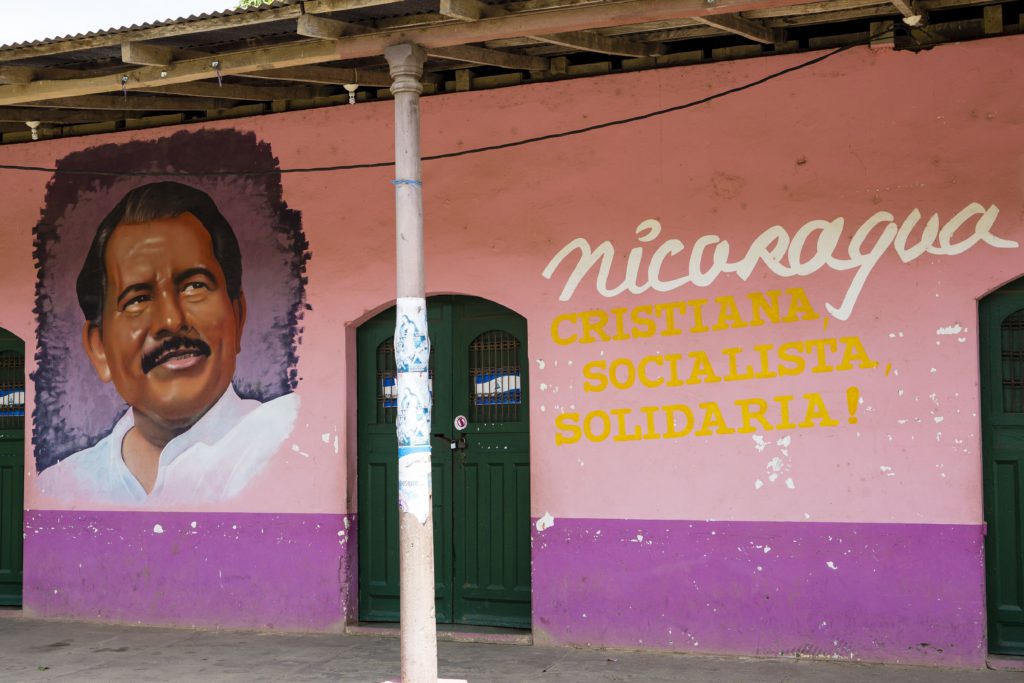
The Law on Regulation of Foreign Agents emerged after the social outbreak in April 2018 against Daniel Ortega’s regime, in power since 2007. The law also resulted in the ban of a dozen NGOs blamed by Ortega of fueling the demonstrations.
In the Venezuelan case, the controversial bill seems to be a remake of previous texts, with a heavy political load in the rationale and contents.
According to the draft law, humanitarian aid has been used by the “Anglo-Saxon hub” as a tool of foreign meddling, interference and destabilization, in reference to the events occurring in the first half of 2019.
The document highlights the selective use of human rights advocacy as an excuse to justify potential foreign invasion and any other attacks.
It also points out that the COVAX facility -the global pooled procurement mechanism for equitable access to COVID-19 vaccines under an allocation scheme formulated by the World Health Organization- tends to give precedence to some countries over other countries, having negative repercussions on the effectiveness.
The bill mentions the political use of the issue of migrants, arguing that the Venezuelan migration is the result of unilateral and coercive economic sanctions, “imposed by a super power,” in reference to the United States.
The new draft law aims at “restricting the ways to mobilize resources, not only of a financial nature. Some elements are related to freedom of association. One of them, which is key, includes fundraising, reception and use of the proceeds from international cooperation for legitimate purposes,” Reyna, of Acción Solidaria, said.
“It is like having a body unable to receive food,” he suggested.
Still another matter of concern for NGOs, contemplated in the Venezuelan bill, is that “compliance with the State goals is specifically regarded as legitimate, and nothing could be really further from freedom of association as a human right than imposing things to be worked on, provided that they do not affect the Government,” Reyna said.
“The fight against corruption or against abuse of authority could be considered as running counter to such goals of those in power,” he stressed.
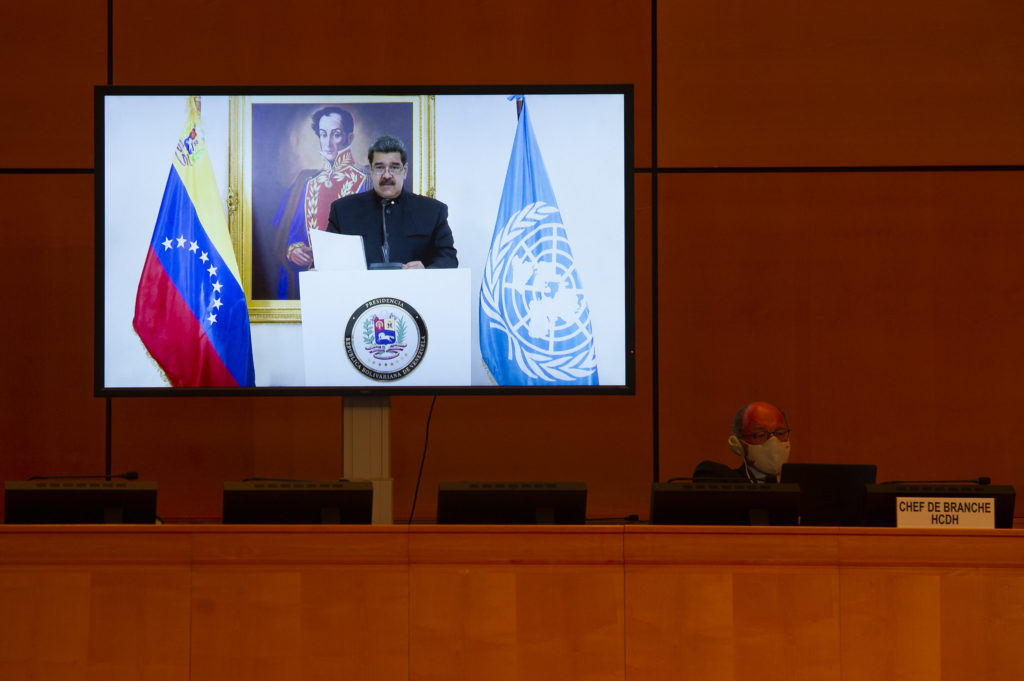
“All of that is at odds with legitimacy and effectiveness,” said Uzcátegui, the representative of Provea, an organization consistently demeaned by government officials for years.
A downhearted Reyna estimated around 800 NGOs operating currently in Venezuela, compared with up to 5,000 in the past.
For his part, Uzcátegui claims that the registration of a human rights organization in Venezuela is rather complicated nowadays.
“There is an unwritten, nonverbal order of not registering organizations that have human rights advocacy as part of their mandate. Such a pattern is replicated in several states in the country,” he complained.
The most recent report from the Office of the United Nations High Commissioner for Human Rights that was released on July 2, 2021, underscored criminalization against NGO activists that are vocal critics of Maduro’s regime. The report also warned that such actions threaten their integrity and work. The Venezuelan regime has ignored such a complaint for some time now.
As part of a strategy to affirm its influence as super power rivalling the United States, for some years Russia has scored a triumph by making some governments in Eastern Europe and Central Asia to model its stringent laws.
Damelya Aitkhozhina, the Human Right Watch expert, admitted not to be familiar with the particulars of the draft laws under discussion to the detriment of civil society.
Nevertheless, she commented, “Given the close cooperation of Venezuelan regime with the Kremlin and likely similar philosophy/attitudes towards perceiving civil society and civic activism as potential threat, it is hardly surprising to see the export and ‘transplantation’ of the repressive methods targeting civic groups.”
Gilberto Olivares Ochoa, based in Caracas, collaborated on this article
Updated 7/9/2021 to add statements from the State Department Spokesperson
